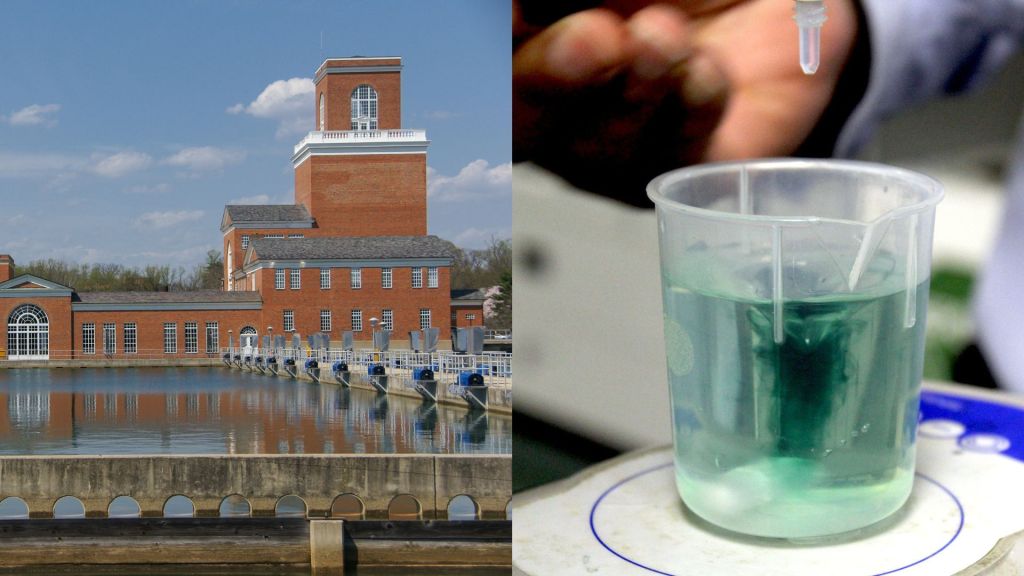By Madeline Seck
AFRO Intern
mseck@afro.com
On the eve of Fourth of July holiday, July 3, the Washington Aqueduct deemed the drinking water low quality recommending D.C. and parts of Northern Virginia. residents to boil water before drinking. As of 7:30 a.m. on July 4, the advisory had been lifted.

Cred: Photos courtesy of USACE
The U.S Army Corps of Engineers Washington Aqueduct, which supplies and ensures safe, reliable and cost-effective drinking water for D.C. as well as small sections of Arlington and Fairfax County V.A. found that the surge of high temperatures caused elevated levels of algae blooms along the Potomac River
resulting in high turbidity and leading to a boil water advisory.
John Lisle, vice president of Marketing and Communications for D.C. Water explains turbidity as “a measure of water cloudiness or clarity, a factor in assessing water quality.”
“Customers may notice their water looks cloudy or hazy,” according to an Arlington County press release.
The advisory had guidelines such as boiling all water for one minute, storing it in a clean container, then cool completely before drinking. Washing hands and showering can be done as normal under hot water.
It was also recommended that those with a weak or newly developing immune system such as infants, young children and senior citizens be cared for with precaution as they would be at high risk.
“There are two treatment plants, Dalecarlia, on the far western side of the district along the Potomac River and McMillan near Howard University. Water operations and production shifted to McMillan on July 3, because they were experiencing turbidity issues at their other plant,” Lisle explains.
The District of Columbia Water and Sewer Authority, a utility that distributes drinking water in Washington D.C and Arlington County had concerns this shift would limit the supply of water needed to provide for both districts, additionally, due to the increased demand for water from the fire departments because of the fireworks.
Public Affairs Specialist at the U.S. Army Corps of Engineers, Baltimore District, Cynthia Mitchell explains “The need is probably the highest throughout the year on that day.”
Mitchell also confirms that the advisory was only for precautionary measures, “All water being supplied from the Washington Aqueduct was completely within EPA standards and remained that way throughout the boil water advisory and we continue to take proactive measures to protect public health.”
With approval from the U.S. Environmental Protection Agency (EPA), water was to continue pumping from the Dalecarlia Water Treatment Plant with the advisory.
Washington Aqueduct closely monitored and treated the water to combat algae the evening of July 3 to ensure the water quality was up to EPA standards.
“We are constantly evolving trying to modernize processes. Climate change and rise in temperatures are taken into consideration because it impacts us long-term in providing quality water. We can ensure all consumers that the quality of the water being produced at Washington Aqueduct is excellent, and meets or exceeds all EPA standards and requirements,” spokesperson Mitchell says.
The post As temperatures rise, drinking water is provided with caution appeared first on AFRO American Newspapers.











